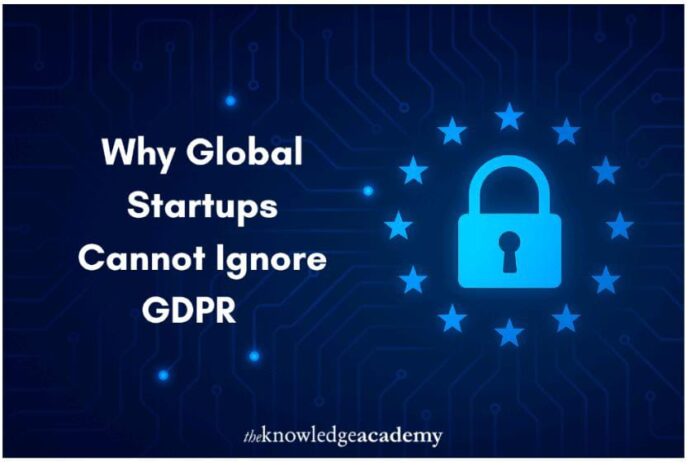Do you know what happens to your data after you click ‘accept all cookies’? Most startup founders think GDPR is just a European headache. However, overlooking it could quietly stall your global growth before you even begin.
A Certified Data Protection Officer Course can help founders and teams understand how to embed privacy into their business DNA from the outset. And if you have ever wondered What is GDPR trying to protect, the answer goes far beyond email consent checkboxes. Let us explore why this regulation matters even if your startup is based far from the EU.
Table of Contents
- Understanding GDPR in Simple Terms
- GDPR Applies Even If You are Not Based in Europe
- Core Principles of GDPR Every Startup Should Know
- The Real Risks of Ignoring GDPR
- Conclusion
Understanding GDPR in Simple Terms
The General Data Protection Regulation, or GDPR, was passed by the EU in 2018. It gives people in the EU to have more control over how their personal information is collected, saved, and used. It applies to any business that handles the data of EU citizens, regardless of the business’s location. If a startup in Singapore or India services European consumers, it could be subject to GDPR.
GDPR Applies Even If You are Not Based in Europe
One of the biggest mistakes people make is thinking that this regulation just applies to businesses in Europe. That is not true. GDPR applies to your startup if it has a website that gets visits from Europe, provides services to people in the EU, or handles their personal data in any way. The law is in place to protect individuals, not businesses. Therefore, you must follow the rules, even if your firm is based in Australia and collects data from individuals in France.
Core Principles of GDPR Every Startup Should Know
There are a few key principles at the heart of the GDPR. Startups may develop ethical systems that follow the rules from the ground up if they know what they are.
Lawfulness, Fairness and Transparency
Startups must handle data in a way that follows the law and is clear to all the parties. To do that, you need a good reason to gather information and let people know exactly how it will be used.
Purpose Limitation
Only gather what you need. Startups need to be clear about why they are collecting data and not use it for other things later.
Data Minimisation
Get only the information you need to do what you need to do. Do not succumb to the urge to gather more information.
Accuracy
Check to see if your data is up to date. You need to fix or get rid of any information in your system that is wrong or out of date.
Storage Limitation
Do not retain data for an extended period. The GDPR says that data should not be kept for longer than is needed to do what it was collected for.
Honesty and Confidentiality
Security cannot be compromised. You need to use the right tech tools to keep data safe from breaches and leaks.
The Real Risks of Ignoring GDPR
Startups often lack sufficient funding, making it easy to put off compliance. However, breaking the GDPR can have effects that are much worse than the cost of complying early. The risks include:
Fines and Penalties
The fines are very high. GDPR allows for fines of up to 20 million euros or 4% of your yearly global turnover, whichever is greater.
Loss of Trust
People are becoming more aware of their privacy. Your brand’s credibility can be hurt if there is a breach or if your data policies are called into question.
Barrier to Growth
Many investors, especially those in Europe, are reluctant to invest in firms that do not adhere to established rules. It can also stop you from working with EU-based companies and forming partnerships.
Operational Disruption
Investigations and fines can slow down your firm, push back product releases, and prevent your team from achieving their primary objectives.
Conclusion
Some people think that startups move quickly, but it is important to take your time and plan when it comes to data. GDPR is more than just a box to mark. It builds trust and leads to long-term success. Consider The Knowledge Academy courses to learn how to comply with GDPR and create a culture that puts privacy first from the start.

